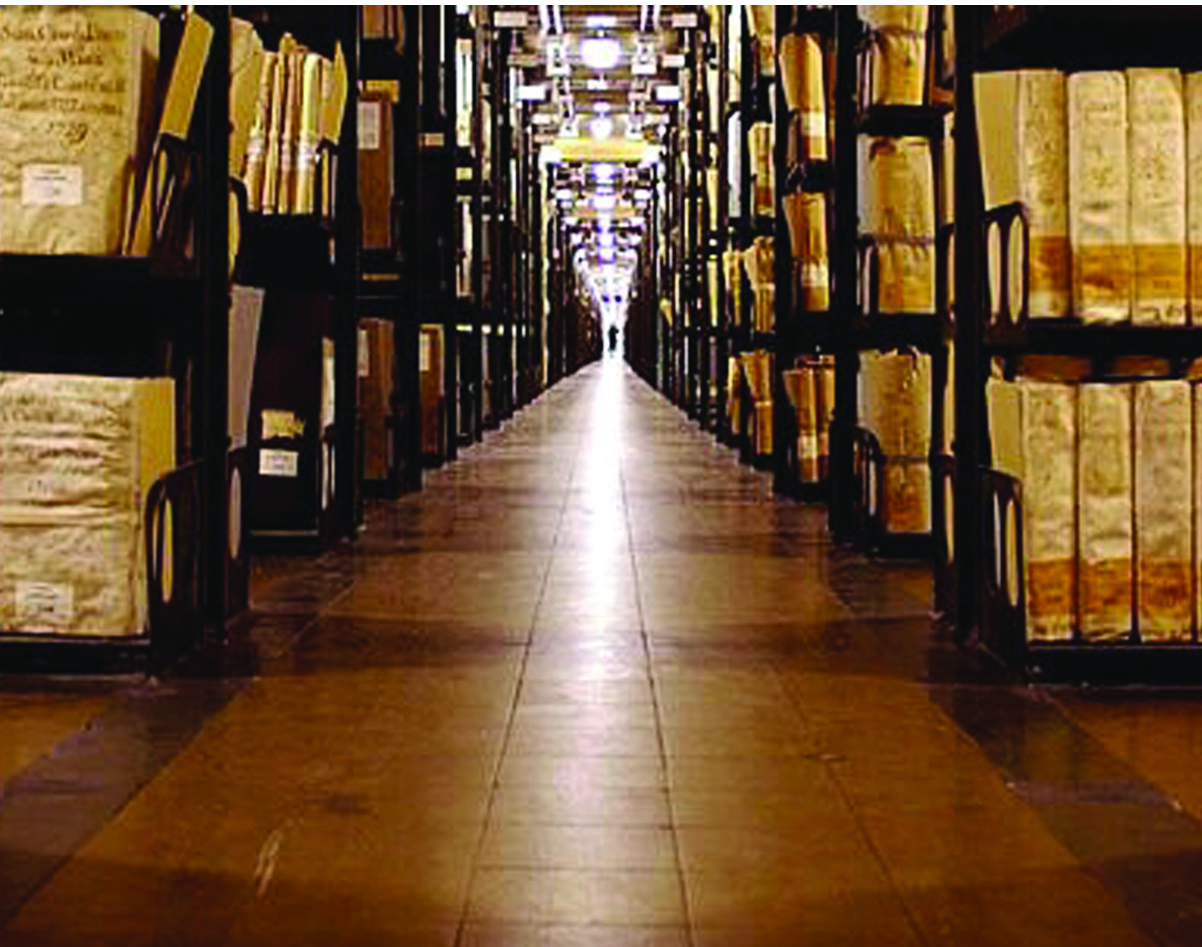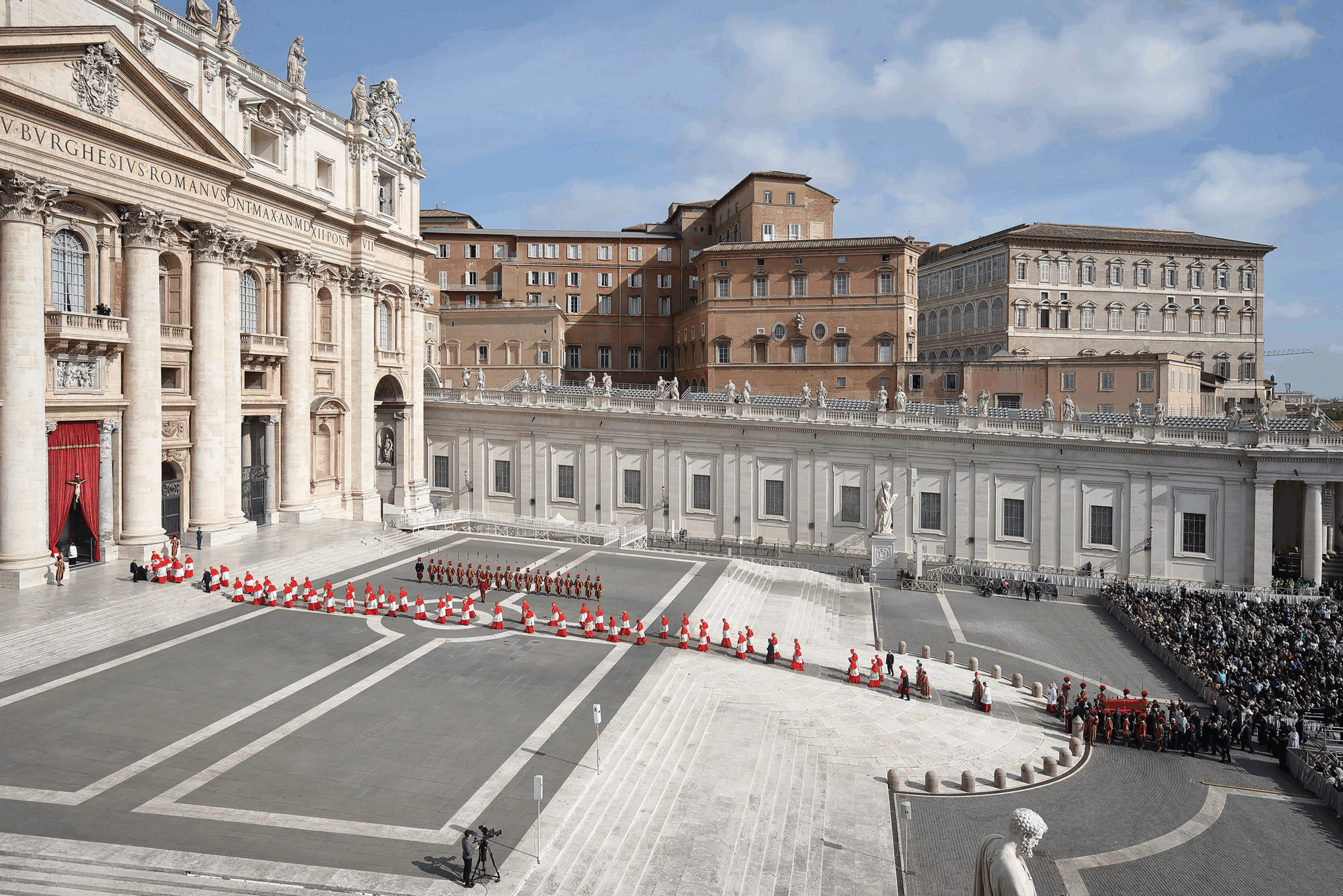The defenders of Pius XII, who has been unjustly accused of being “Hitler’s Pope,” promise “prejudices will fade” as his extraordinary efforts against the Nazis are brought to light
By CNS/ITF Staff

A view of one part of the Vatican Archives. They will open on March 2 for the years of the pontificate of Pope Pius XII (1939-1958). Bishop Sergio Pagano, 71, head of the archives
After decades of anticipation, the Vatican archives will be ready to welcome starting March 2, scores of scholars wishing to study documents related to the wartime pontificate of Pope Pius XII.
All 85 researchers who have requested access have been given the green light to come and sift through all the materials from the period of 1939 to 1958, Bishop Sergio Pagano, prefect of the Vatican Apostolic Archives, told Catholic News Service January 13.
Coming from at least a dozen countries, the first wave of researchers includes ten experts from the United States, including two from the Holocaust Memorial Museum in Washington, D.C. The museum has been working with the Vatican archives for more than a decade, Bishop Pagano said, ever since Pope Benedict XVI authorized the early opening of materials pertaining to the pre-World War II pontificate of Pope Pius XI.
It took more than 12 years to sort through, organize and catalogue the enormous quantity of information from Pope Pius XII’s long pontificate, Bishop Pagano said; documents from the time period also were collected from the archives of the Vatican Secretariat of State, the Congregation for the Doctrine of the Faith, and Vatican nunciatures around the world. The open collection also includes thousands of notes regarding Pope Pius’ charitable activity in Italy and abroad.
In fact, Bishop Pagano said he hoped there would be in-depth research into the critical and huge amount of aid the Pope gave to those desperately in need during and after the war.
Such massive assistance, he said, was due in large part to a constant flow of generous donations from the United States. The nationality or religion of those requesting aid did not matter to the Pope; he only verified that need was legitimate, the bishop said.
He said the archives have letters from people who admitted they were atheists but were turning to the Pope for help because they saw him as the only moral leader left in such a dark time in history.
Referring to accusations by some historians and Jewish groups that Pope Pius XII and others did not do enough to stop the Nazi rise to power and the Holocaust, Bishop Pagano said the Pope “did speak with his efforts and then he spoke up with words, so it is not true that the Pope was totally silent.”
The new researchers’ stated fields of interest, he said, obviously were focused on World War II, the Holocaust, the persecution of the Jewish people, the murder of Italian citizens in Rome by Nazi German troops and the relationship between the Holy See and the Nazi’s National Socialist Party and with Communism.
William Doino, lead contributor of The Pius War: Responses to the Critics of Pius XII and a well-known defender of the wartime Pope, said in a statement that opening the archives is “the moral and just thing to do” given years of requests.
He expected critics to be the most surprised by the contents, and for the record to be finally set straight on the pontificate.
“We know [Pius XII] was anything but indifferent to the persecution of Jews and others during the Holocaust, and did not, as certain polemicists have claimed, appease the Nazis: Pope Pius XII, in fact, tried to overthrow Hitler,” Doino said.
He also said he believed opening the archives “will certainly help accelerate” Pius’ cause for beatification.
Along these lines, Bishop Pagano confirmed that some are also looking into Pope Pius’ valuable theological legacy and writings. He wrote more than 40 encyclicals, and “he is one of the Popes most cited during the Second Vatican Council,” the bishop said.
Some experts will also be looking for information about local dioceses and how the Pope may have helped those sheltering refugees and Jews in religious institutes, for example, he said.
However, based on what he has seen, he said he does not think researchers will find anything “enormously new” or anything that will turn history “upside down.”
Together with what has been emerging in national archives, he said, “many prejudices (against the Pope) will fade away, without a doubt.”
But, “it will take many years to form a new opinion about Pius XII. One, two years is not enough,” said the 71-year old bishop, who has worked at the archives for more than 40 years.
If studying all historical records is done objectively and critically, he said, “maybe in ten years a new impression will take shape of this pontificate, which was very remarkable and came at a very critical point in world history.”






Facebook Comments